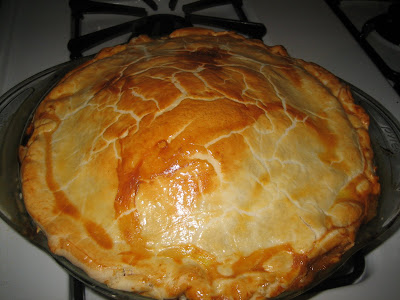"Frankness is the prime virtue of a dead man."
Book: The Posthumous Memoirs of Bras Cubas by Joaquim Maria
Recipes: The Brazilian Kitchen by Leticia Moreinos Shwartz
Mexilhoes com Molho de Coco
(Mussels in Coconut Cream Sauce)
1 lb mussels
2 tbsp oil
1/4 each onion, green, red, and yellow bell peppers
3 cloves garlic, pressed
1 cup dry white wine
1 1/2 cups coconut milk
Salt and pepper to taste
1 plum tomato, peeled, seeded and diced
2 tbsp chopped cilantro for garnish (optional)
Rinse and scrub the mussels, debeard and discard any shells that are cracked or will not close.
In a large pan, saute the vegetables in the oil over medium heat until just tender, about 3 minutes. Add the garlic and saute another minute. Add the mussels and wine, cover and simmer until all the shells open (about 5 minutes). Discard any shells that have not opened. Remove the mussels and keep warm in a covered bowl. Bring the remaining sauce to a boil and add the coconut milk and salt and pepper to taste. Return the mussels to the pan, add the tomatoes, and heat through. Serve with crusty bread for dipping.
I take no credit for this meal. The only job I had was to scrub and debeard the mussels. Jay took care of everything because I've been sick all weekend. He even did the dishes while I fell asleep on the couch. The soup was a great soup for a sicky because of the illusion of comfort food creaminess without the actual dairy. Thank you, Jay!
About the book:
Bras Cubas has this to say about reflecting on your life after your death: "The gaze of public opinion, that sharp and judgmental gaze, loses its virtue the moment we tread the territory of death. I’m not saying that it doesn’t reach here and examine and judge us, but we don’t care about the examination or the judgment. My dear living gentlemen and ladies, there’s nothing as incommensurable as the disdain of the deceased." This is why he can be so blase about all his early profligacy. More on that to follow, but right now, I'm still sick and my bed is calling to me.















